When Your Stomach Growls, It Isn’t Telling You it is Hungry
When Your Stomach Growls, It Isn’t Telling You it is Hungry
When you eat food, there are muscles along the digestive track that help to move food from your mouth, down your esophagus, through your digestive tract, and out the other side. These are rhythmic, peristaltic wave like patterns that help to move the food along your digestive tract.
When your stomach rumbles and growls in between meals, you likely take this as a cue that you are hungry. These aren’t hunger pains that you are feeling. The growling and rumbling that you hear in between meals is triggered by the Migrating Motor Complex. This complex sends peristaltic waves through your stomach and small intestine, in a regular cycle during a fasting state. This is during the interdigestive phase, in between meals. This isn’t in response to something that you just ate. The Migrating Motor Complex is active when you aren’t eating.
"When your stomach growls it is not always hunger, great post on SIBO Guru"
↑ Tweet ThisThese actions are thought to serve a housekeeping role. To help sweep undigested material and residual organisms further down the digestive tract. There are four phases of activity. During the third phase, which last 5-15 minutes, we see the most rapid and evenly spaced wave like contractions occur. This is an important role that we don’t want to inhibit. These phase III contractions occur after 90-120 minutes when you are in a fasting state (post meal). The second you eat something, the Migrating Motor Complex is inhibited.
If you don’t allow enough space between your meals and snacks, or if you eat too close to bedtime, your Migrating Motor Complex will not be activated and you won’t benefit from this sweeping motion. Gastric content will stick around in the digestive track for a longer period of time. This is linked to SIBO, a small intestinal bowel overgrowth. Inhibition of the Migrating Motor Complex allows gastric contents and organisms to stick around longer and this creates a prime environment for large numbers of bacteria to take up residency in the small intestine. This can also lead to dyspepsia, which is really a collection of digestive symptoms, such as bloating, abdominal distention, pain, early satiety and or nausea. A connection is also seen among people with an overgrowth of h. pylori, which is a bacteria overgrowth that can occur in the stomach, though we are not sure whether h. pylori is causing the inhibition of the motor complex, or if the inhibition of the motor complex is making people more susceptible to an h. pylori overgrowth.
The Migrating Motor Complex is not as active during the night, so eating right up until bedtime may not be the best approach. This is why I recommend a nightly mini-fast. Refrain from eating after 7PM. This offers a 12 hour mini fast and time for the rapid sweeping motion of the Migrating Motor Complex Phase III activity, prior to bed.
The other thing that interferes and inhibits the Migrating Motor Complex is stress. You have already heard me speak on the numerous ways that stress diverts resources away from digestion, at every level. In response to stress, you produce less saliva, digestive enzymes, and stomach acid and peristalsis while you are eating. We can now add to this, that stress will inhibit the sweeping motion of the Migrating Motor Complex in between meals. This is really a recipe for disaster in the digestive tract. This is one more reason why stress levels needs to be addressed when addressing any digestive symptom and condition.
The next time your stomach growls at you, you’ll know that this is your Migrating Motor Complex cleaning up your digestive tract.
Angela Pifer is a Functional Medicine Nutritionist
www.CleanAndLeanSystem.com
Work with Angela one on one: www.NutritionNorthwest.com
Enjoying this content? Sign up for updates... It's FREE!


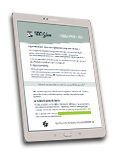
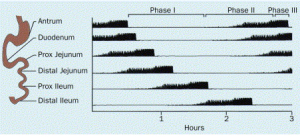

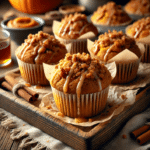
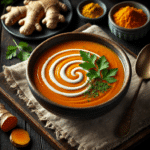
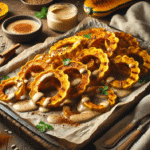











Comments
from 24 people
Hi Anne, we do not need to eat or drink with timing, with regard to the MMC. We simply need to be aware that if a motility issue is present, then trying to work a short fast in (or breaks in between meals) may be more desirable, but, this really doesn't work for everybody. The majority of my patients are eating consistently across the day. Ideally, they do not eat after dinner and we add motility support. I find that many people with SIBO (and other chronic functional gut disorders) also have issues with symptoms coming from poor adrenal signaling (dyregulated signaling of the adrenals - which causes blood sugar dysregulation, sleep issues, anxiety, etc.) and because of this, they can't skip meals and snacks and many need to have a snack before bed. We can still clear SIBO. What we see in the lab and studies does not perfectly dictate what we do in the clinic. Water does not interrupt MMC, but anything with a calorie, or sugar alcohols, or taking supplements does.
Angela Pifer
Any idea if drinking water (between meals) inhibits MMC? Or if maybe just ACIDIC water (my distilled is acidic) inhibits MMC by tricking the body into thinking it's eating (due to the body mistakenly thinking the acidic nature of water=stomach acid), but neutral/slightly alkaline water (between meals) would NOT inhibit MMC? This is just a random theory. I can't find any info online about whether or not different types of water inhibit MMC or not. Any thoughts about this?
Anne
Oh, I wish that this were true for everybody. But unfortunately it is not. SIBO is a secondary condition that is not easily controlled by antibiotics. This may be part of the bigger treatment picture, but we really have to look at each patient individually to determine the best course of treatment. What set this up, what level do we need to address the underlying condition and what the best course of treatment is, again, based on the individual. If rifaximin worked to the degree it is thought to work, we wouldn't be discussing this right now.
Warmly
Angela
Angela Pifer
Rifagut (Rifaximin) 200mg x 3 times for 2 weeks helps to control SIBO. Severe SIBO symptoms should be relived within first 3 days of treatment regime. Talk to your doctor before taking the medication.
arp
Hi Ashleigh,
I am so sorry for what your family is going through. SIBO symptoms mirror many other things - pancreatitis, parasites, c-diff, IBD. I would not walk into this thinking that this is 'only' SIBO. I would continue to explore what this is and what this isn't until you get the answers that you are looking for. I do want to say here that I am not anti antibiotic. I simply want to use them for the scary stuff (I don't feel that SIBO is scary, though often debilitating symptom-wise for people). At the same time, the pros and cons need to be measured to see if it makes more sense to use the antibiotics sometimes. At his age, you are not going to get him to take the herbs to treat SIBO (again, if this is what it is). I HIGHLY recommend that you listen to Chris Kresser's podcast here: http://chriskresser.com/testing-and-treating-digestive-issues-in-children/ My heart goes out to you. I have a six year old and I really do understand how hard it is to watch your child go through something like this.
Warmly
Angela
Angela Pifer
I am a mother of 4 boys. My 2 yr old son started with vomit and diarrhea back on Aug 16th. He had it for 8 days and as soon as progression began he would relapse. This happened for 3+ weeks. He then proceeded to get scarlet fever, took amoxicillin, and couldnt walk. (Termed reactive arthritis or post infectious syndrome). I did not rish to the dr when this began as I figured it was just a virus and would need time. After 15 days I did take him. First stool diytherix showed pos to c-diff, but second stoll "culture" showed negative to toxin A and that he was just a carrier. We were in and out of Er for fluids and tests and then admitted to the hospital for a few days for more tests. No one can give answers. We left the childrens hospital after days with simply MIRALAX!! EVERYTHING i am reading on Angela's SIBOguro site lines up with my son's symptoms. His stomach continues to get hard and distended as the day goes on and grows 2 inches from am to pm. Can someone please help me! We have been on probiotics and Im not seeing improvement. I do not want to use antibiotics but I also cannot afford two weeks with Angela. This is what My son has I know it and he needs help! I spent many nights crying and I feel certain this is what is going on in my 2 year olds body and I feel like his immune syst is SO weak we r just waiting for the next thing. Any advice would be such a blessing.
Ashleigh
Hi Petar,
I haven't seen any studies exercise interrupting the MMC. Eating too often absolutely interrupts the MMC. I did a post on this. https://siboguru.com/when-your-stomach-growls-it-isnt-telling-you-it-is-hungry/ I recommend spacing your meals out every four hours and make sure that you have four full hours between dinner and bedtime, without any food. Stress reduction is also a must; it will interfere with digestion at every step, including MMC activation.
Angela
Angela Pifer
Hello,
Is possible that MMC is interrupted by exercise after eating, or eating too often?
Also, if antibiotics can interrupt MMC, is that repairable or its damaged forever?
Whats best ways to restore MMC?
Thanks
Petar
Hi Kelcey,
There are various prokinetic medication and herbs that could be used. We would also need to take a look at why the MMC is inhibited in the first place. Eating pattern can play a role here. Chronic stress is also an issue. New studies are showing that this may (not always) be connected to an autoimmune condition - this is linked to a food borne illness exposure where your body produces antibodies to the CDT-B toxin and these antibodies also act on a protein in your wall of your GI tract - called vinculin. When vinculin is attacked it cannot bind to your muscle fibers, connecting through f-actin, and pull the muscle fibers taught. When these muscle fibers remain in a relaxed state, this can affect the MMC and during meal peristaltic waves from contracting and relaxing. There is always a lot to look at and assess...
The prokinetics available are what is used, yet, most people acclimate to these quickly and they begin to lose their effectiveness.
Angela
Angela
Hi Angela - how does one treat a slow MMC? Any supplements or meds that can help?
Melissa
Hi Isaac,
I would target the 6-8 hours in the middle of the day, to eat. Say, 10-4PM or 10-6PM. That way, your MMC will have time to perform, prior to bed. And, you'll get more restful sleep with an empty stomach. Keep me posted!
Angela
Angela
Great article! I didn't realise that the MMC wasn't as active at night. I've been doing some intermittent fasting and my eating window is about midday to right before bedtime, maybe I'll shift the hours around.
I also notice that on SSRIs my MMC is much stronger, I guess that comes back to the stress in a way. Anyway, great read.
Isaac